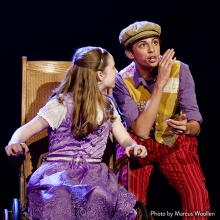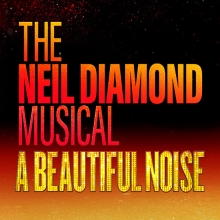Show History
History
Inspiration
Willy Wonka utilizes material from both Roald Dahl's children's book, Charlie and the Chocolate Factory, and the 1971 movie-musical adaptation, Willy Wonka & the Chocolate Factory. After getting clearance from the Dahl estate to work on the musical, Timothy Allen McDonald went to Leslie Bricusse (Stop the World – I Want to Get Off, Jekyll & Hyde, Victor/Victoria), who had worked on the music for the original film with his deceased partner, Anthony Newley. Bricusse decided to fill the show with additional new songs that had the "retro-sounding" style of the earlier music.
The stage adaptation of Willy Wonka's story took some liberties with the original material, leaning more towards faithfulness of the film than the book. Most notably, the character of Willy Wonka serves as the narrator of the story in addition to playing his typical role. There are also songs written to introduce Augustus Gloop and Mike Teavee, along with two songs dedicated to the sequence of Charlie and Uncle Joe drinking the Fizzy Lifting drink.
Productions
Willy Wonka premiered at the Kennedy Center from November 26, to December 26, 2004, as a part of its "Imagination Celebration" series. The run was extremely successful and led to a full licensing of the show, in addition to the production of several alternate versions (see "Cultural Influence" section). Willy Wonka eventually returned to its home at the Kennedy Center for a run from December 23, 2006, to January 7, 2007, followed by a national tour that ran from September 8, 2007, to May 23, 2008. Other prominent theatres that have performed Willy Wonka include the Seattle Children's Theatre and Chicago's Shakespeare Theatre, the latter of which notably utilized large puppets for many characters, such as the Oompa Loompahs.
Cultural Influence
- Demand for Willy Wonka prompted the creation of several different stage versions. Willy Wonka JR. shortens the show to a one-act to be performed by middle school kids, while Willy Wonka KIDS abridges the show even more to a "bite-sized," 30-minute version for even younger performers. Willy Wonka TYA adapts the rather imaginative show for more amateur productions, also shortening the material to a one-act and doubling several parts for a reduced cast.




